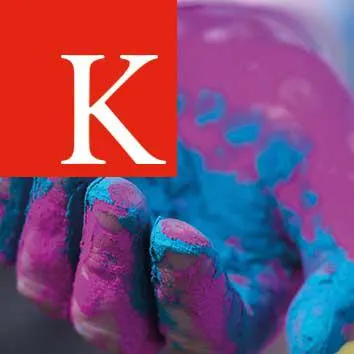Crafting a Circular Economy

ABOUT CRAFTING A CIRCULAR ECONOMY
The world is facing unprecedented challenges in relation to climate change, population growth, urbanisation and globalisation and the current linear economic model (make, use, dispose) is not sustainable. The Circular Economy is positioned as a means of alleviating this pressure and maintaining and replenishing the world’s resources.
Following a successful application made to the Arts & Humanities Research Institute's REACH Space Pop-Up Research Fund, Dr Lauren England and designer / maker Julian Leedham developed a series of workshops to explore new ways of making use of waste materials and developing biodegradable ones, from repairing, refurbishing, reusing and recycling products, to developing service models.
Their project aimed to build greater understanding of the work of creative individuals and organisations engaging with the circular economy.
WORKSHOPS
Although initially based in the REACH Space, due to the Covid-19 pandemic, project activities moved online and enabled a wider engagement with designers and makers across the UK and in Europe.
Overall, three virtual workshops were created that took place across May 2020 for designers, makers and circular economy stakeholders.
The workshops covered the following themes:
- Principles and Practice
- Mapping Resources
- Materials
Workshop one: Principles and Practice
Friday, 1st May 2020
In the first workshop, two consecutive sessions were held with 12 participants in total. Discussions took place about the principles of the circular economy for designer makers. Seeking to address the shifting terminology associated with the circular economy in relation to design, and how associated terms and themes have evolved in the craft and designer maker arena, participants were encouraged to discuss the terms they used to describe their own work.

Workshop two: Mapping Resources
Friday, 15th May 2020
For the second workshop, an initial mapping of resources (materials, equipment, equipment, services, and networks) was conducted. With 18 participants in total, again over two consecutive sessions, resources were captured via Padlet, an online collaborative platform and, where possible, mapped geographically via Google Maps to enable contributors to explore resources in their local area.
One of the primary goals in developing and delivering Crafting a Circular Economy was to produce an open source platform and all collected resources are now hosted on the Varioustudios website. This platform provides space for people to share and learn what is already out there that can support their work or understanding of sustainability and the circular economy.
Workshop three: Materials
Friday, 29th May 2020
The final online workshop focused on materials, with 12 participants taking part to discuss and share their experiences of working with various materials such as biomaterials and waste-stream materials.
Discussions ranged from the topic of the cost, time and space required for developing new, sustainable materials to the concept of sharing and ownership of knowledge. In light of Covid-19, this last workshop focused on the potential to create a system that addresses both waste materials and safety requirements.
PROJECT OUTCOMES
For full details of this project, please see their project report located under the Outputs tab at the bottom of this page.
The conversion of workshops from physical events to virtual ones impacted project outcomes in the following ways:
- By utilising Padlet, the project was able to retain, to some degree, the interactivity of the planned activities, and enabled networking between participants. While it did have its own technical complications, using Padlet allowed participants and others to access outcomes of the workshop after the event. While the online format limited to a degree the spontaneity of interaction, it did open workshops to designers and makers across the UK and Europe.
- As a direct result of the workshops, a database was created alongside a map of resources to support engagement with the circular economy, to encourage knowledge sharing among those who engaged with the project. See the Varioustudios website.
The AHRI funding, combined with the outcomes of the workshops, also enabled the project team to develop further funding proposals to extend and expand research in this area.

Project websites
Funding
Funding Body: King's College London and Affiliates
Amount: £1000
Period: January 2020 - June 2020
